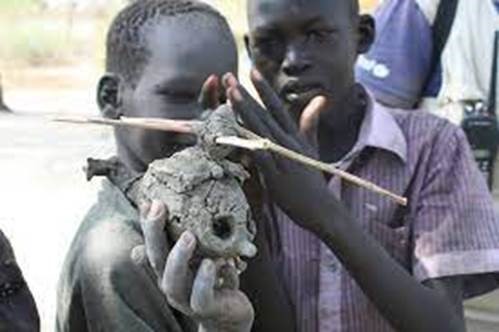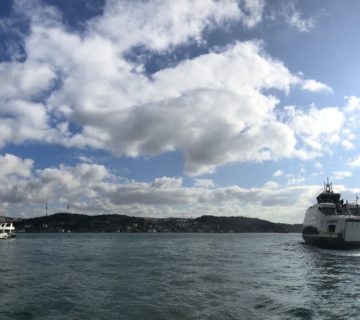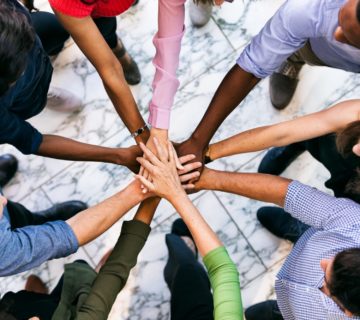In 2014, I flew with a helicopter to a remote area in South Sudan, the youngest nation, who joined the United Nations in 2011, but was about to be torn apart by a civil war. Hundred thousands of South Sudanese who just won a hard won war with Sudan, who knew nothing but war and were ready to enjoy peace were back to conflict and deprivation. I heard stories of people being brutally killed because of their ethnicity. Even when they fled to save heavens, communal fighting continues. The hatred was deep.
One day, I stood at a distribution site with two young boys approaching me and I was stunned. They remodeled the helicopter that was flying in and out every day to bring food aid out of mud. It had small wheels, which were movable and a rotary wing. In the middle of a war zone, in the middle of pain, suffering and trauma, there were these boys who, for a moment could be children again, dreaming about their potential, what they could bring to the world, but because of where they grew up. They cannot.
Not only are wars and conflicts destroying people’s potential and throwing countries back decades in their development, I also realized years later, when I went on a journey of inner development and growth, that the way I thought impact and change was never sustainable. It had nothing to do with whom I was working for or what role I had, it was entirely related to what I thought. I never understood Ghandi’s sentence until this time when he said you need to be the change you want to see in the world. If you get frustrated at your job, overwhelmed by the problem, and have unhealthy behavior, you do not help anyone because you are drowning yourself. Imagine a water guard, who is overwhelmed, not focused, how good is he really at his job? Imagine that to be true for the entire health sector who is overwhelmed by Covid-19, with nurses and doctors risking their lives, while many of them died in the line of duty and being underpaid, how much can they really deliver and make an impact? How much can we really focus on the patient or on the person we are trying to help? Think about a situation when you were stressed out, how much of the world around you were you really able to take in? Not much.
When those who help others, are drowning themselves, what happens to the desire to make a true impact and change in the world? We wont get very far. That’s why we need to create a culture of care for those who care. This is more important than ever because we cannot give without receiving. The first step is to become aware of this need within ourselves. This deep need that we need to stop, breath, take a break and it is okay. Only when we slowly learn to address our needs, can we truly give. And that power of giving comes from a very different place. It comes from an abundant place, where we do not count anymore what we get back. We give out of love, out of abundance, not from a place of emptiness, from a place of need, where its a transactional relationship.
This is what Ghandi means: when you want people to receive, you have to learn to receive first without wanting anything in return. You have to be. Ghandi became peace through his action and behavior. We, as humanitarians, have to re-learn how to give by going within ourselves and removing all obstacles and inner resistance that we have to receive.




